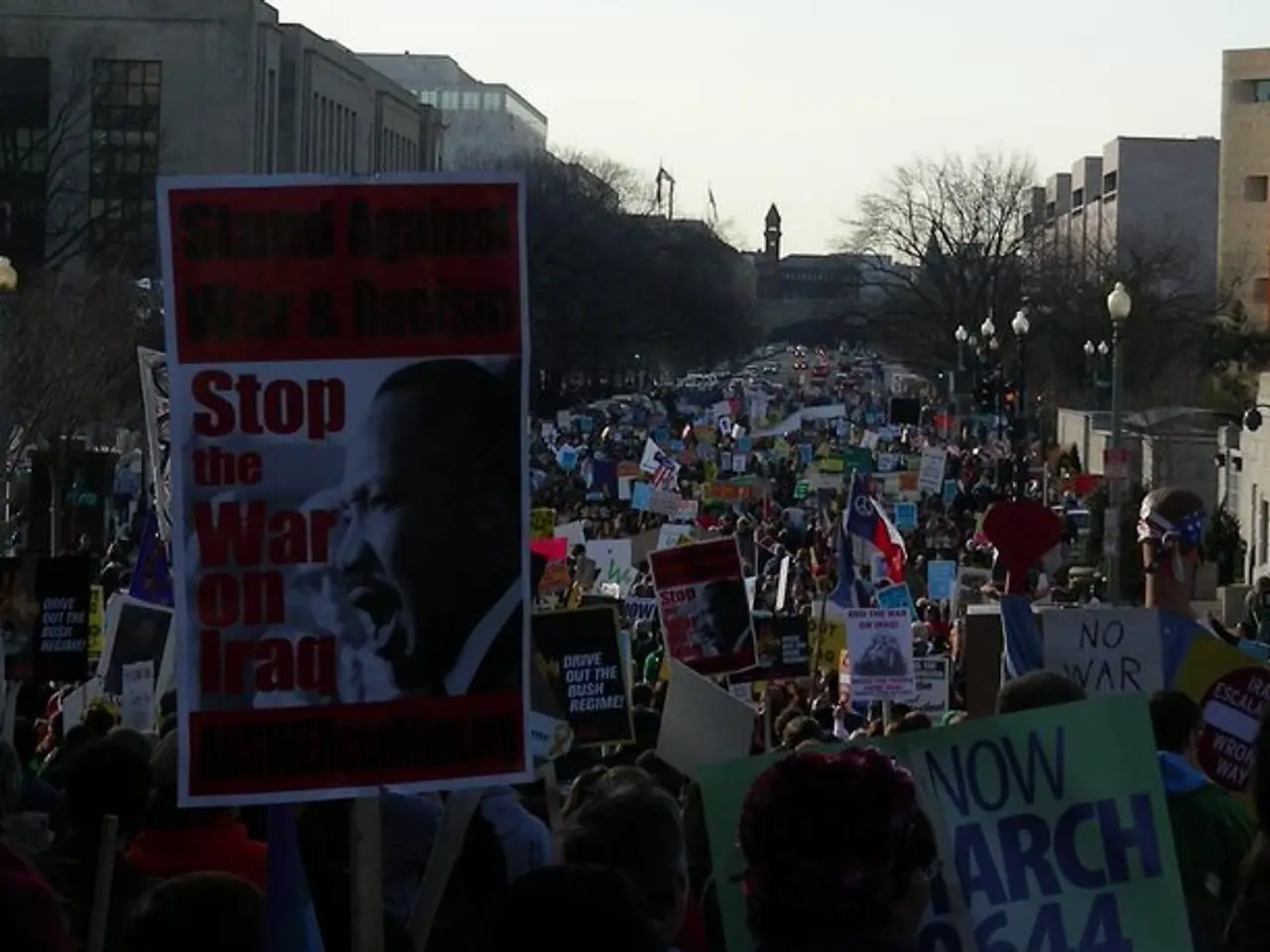Hungary to Classify Antifa as a Terrorist Group, Following US President's Lead
In a move that has sparked international controversy, Hungarian Prime Minister Viktor Orbán has announced plans to designate Antifa, an umbrella term for loosely affiliated far-left activists and groups that resist fascism, fascists, and neo-Nazis, as a terrorist organization within Hungary. This decision comes in the wake of a series of events that have strained relations between Hungary and several European countries, particularly Italy.
Antifa groups, which embrace militant tactics, have been under scrutiny. The incident that has led to the current situation occurred in 2023, when Ilaria Salis, an Italian antifascist activist, was jailed in Hungary following assaults against suspected participants in an annual far-right event in Budapest.
Salis, a left-green Italian politician and activist, was politically active before her arrest. She gained political immunity after being elected to the European Parliament in May 2024, which led to her release from custody. However, the legal issues surrounding her case in Hungary are yet to be resolved, with prosecutors seeking an 11-year sentence.
Orbán, a right-wing populist and strong Trump ally, has been critical of Salis' actions, bemoaning her release and criticizing her for lecturing Hungary on the rule of law after becoming a member of the European Parliament. In a statement, Orbán declared, "Antifa is indeed a terrorist organization."
The Hungarian government's demand for Salis' return to face trial indicates their firm stance against Antifa activities within their borders. The diplomatic dispute between Italy and Hungary over Salis' treatment in detention highlights the complexities of international relations.
It is important to note that Antifa resembles more an ideology than an organization. As such, the potential for violent clashes between Antifa and far-right groups is a real concern, with serious consequences for those involved. The incident involving Salis underscores this potential for violence.
Orbán's decision to follow the American model of classifying organizations such as Antifa as terrorist organizations in Hungary is not without controversy. It remains unclear what prompted this decision, but Orbán has expressed his pleasure over Trump's announcement of designating Antifa as a 'major terrorist organization' in the United States.
However, Antifascist groups rarely engage in political actions in Hungary. This raises questions about the effectiveness of such a classification, as well as the potential for it to be used as a tool to suppress political dissent.
As the situation continues to unfold, it is clear that the designation of Antifa as a terrorist organization in Hungary will have significant implications for international relations, as well as for the rights and freedoms of activists across Europe.
Read also:
- United States tariffs pose a threat to India, necessitating the recruitment of adept negotiators or strategists, similar to those who had influenced Trump's decisions.
- Weekly happenings in the German Federal Parliament (Bundestag)
- Southwest region's most popular posts, accompanied by an inquiry:
- Discussion between Putin and Trump in Alaska could potentially overshadow Ukraine's concerns







